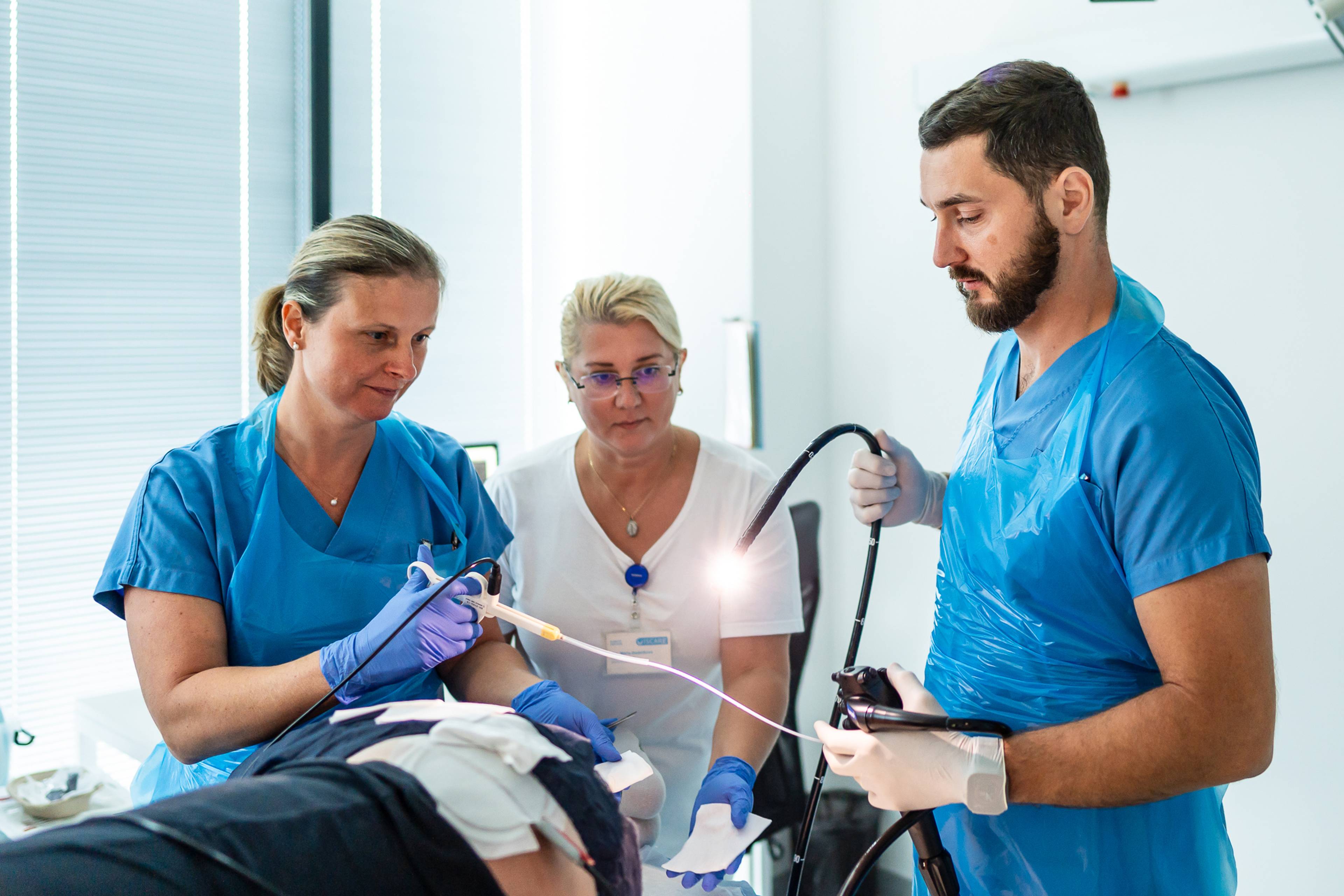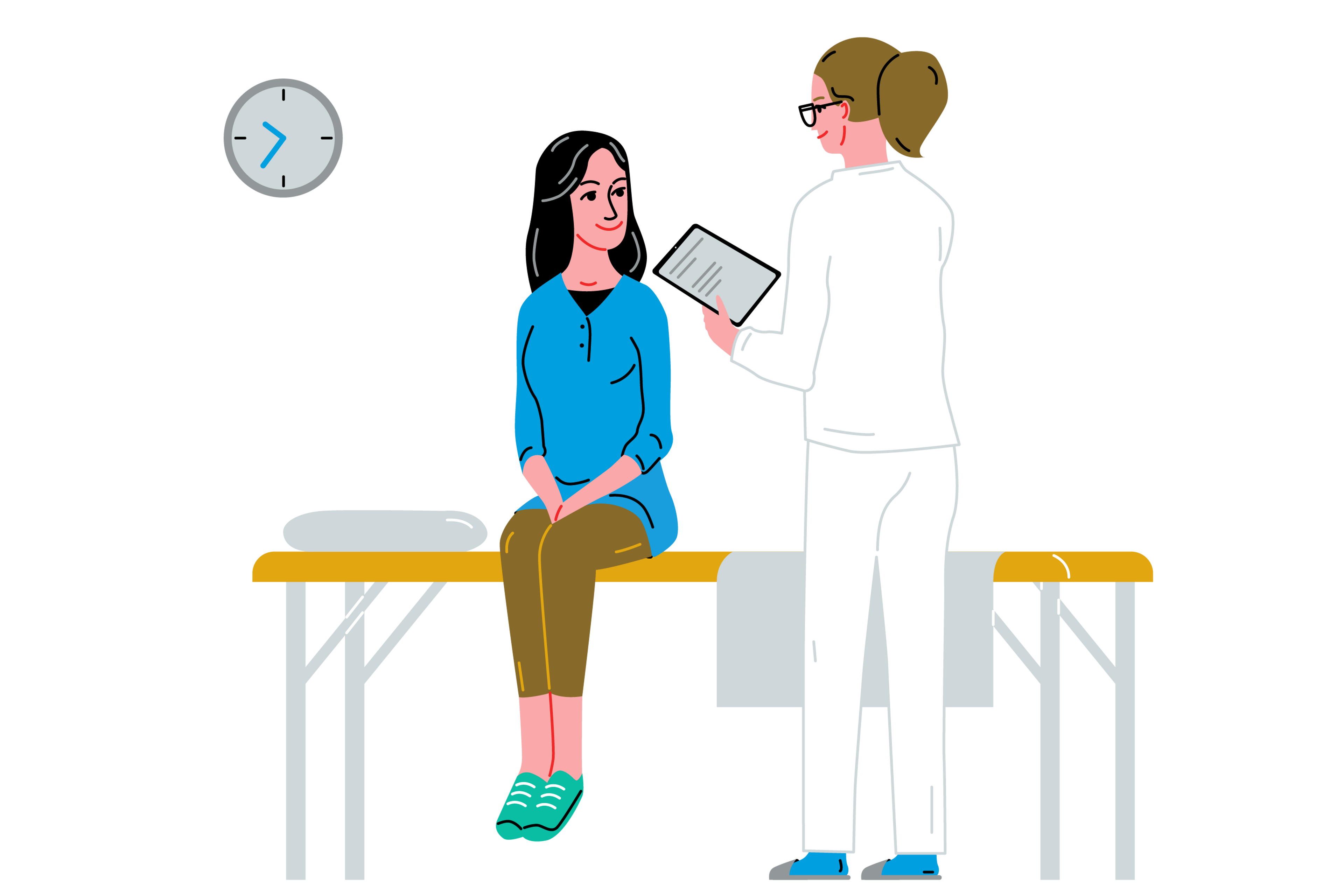Specialized endoscopy: modern technology for gentle examination in the oesophagus and stomach
- The method is used to diagnose and treat diseases of the esophagus, stomach and duodenum. The examination allows direct visual imaging of the mucosa, taking samples for further examinations and possibly performing medical interventions.
- A flexible, thin instrument, the endoscope, is inserted through the mouth into the oesophagus and under the visual control of the doctor into other sections of the upper digestive tract.
- The examination allows for direct visual imaging of the mucosa, taking samples for further examination and possibly performing medical interventions such as treatment of bleeding, removal of abnormal tissue, foreign body, tumour reduction, narrowing or widening of the narrowed section of the digestive tract.
- As part of the examination, patients may be given analgosedation, a type of safe anaesthetic technique that induces a state similar to deep sleep.
Preparation for the examination
Examination without analgosedation
- Do not smoke or eat from midnight before the examination.
- Do not drink anything for 3 hours before the examination.
- Your doctor will inform you of any further restrictions regarding diet and physical activity immediately after the examination.
- After the procedure, you may leave unaccompanied and without restrictions (unless your doctor says otherwise).
Examination with analgosedation
1 month before the examination
- Arrange for a preoperative examination with your general practitioner.
- Internal examination with the conclusion "Patient capable of undergoing the procedure under analgesia" (results must not be older than 1 month).
- Bring the following results with you: CRP, JT / Bil, ALT, AST, ALP, GMT/ , urea, creatinine, minerals / Na, K, Cl /, glycemia, KO + diff., Quick, APTT, and EKG.
- If you are taking blood thinners, consult your doctor about the possibility of discontinuing them or switching to an injectable form (low molecular weight heparin).
On the day of the examination
- Do not smoke or eat from midnight before the examination.
- Do not drink, suck on candy, or chew gum for the last 5 hours before the examination.
- Take any necessary medication 4 hours before the examination and drink a minimal amount of water. Take other medications after the examination.
- Consult your diabetologist about the administration of insulin and oral antidiabetic drugs.
- Come without jewelry, valuables, or makeup. Remove artificial nails, at least from your index finger.
After the examination
- Arrange for someone to accompany you when you leave the clinic (approximately 1.5 hours after the procedure).
- Do not drive a motor vehicle after the examination and avoid activities that require increased attention.
- We recommend rest for the rest of the day.
- You will be informed of any restrictions regarding diet and physical activity immediately after the examination.
Prohlédněte si
Jak to u nás vypadá
Gastroenterologie ISCARE






